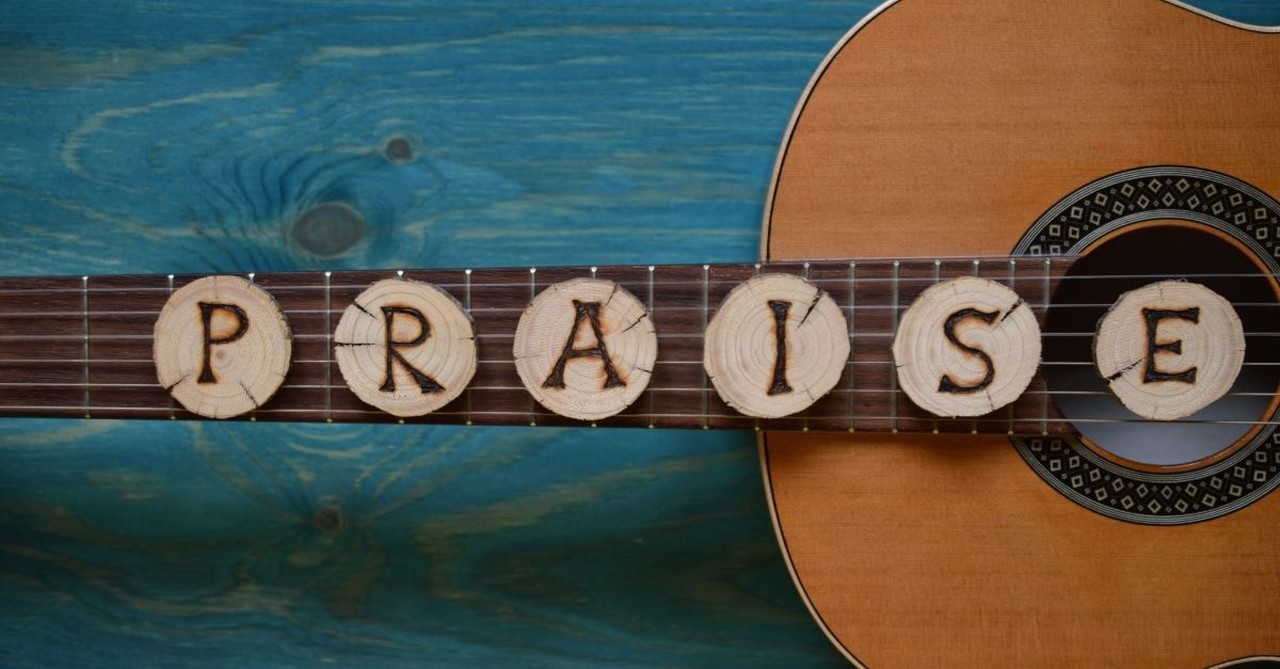7 Hebrew Words for Praise That Every Pastor Should Know

As the pastor, you are the primary praise and worship leader in the church, even if you’re not on the stage. The old adage “As the head goes, so goes the body,” still applies today. So, if you’d like to boost your worship experience, try delving into the original Hebrew, Greek, and Aramaic texts of the Bible. It’s a great way to explore new areas of wisdom and revelation.
In English, we use one word, ‘praise,’ to encompass the more exuberant types of ministry to the Lord. But did you know each time you read the word ‘praise’ in the Bible it could actually mean any one of seven different things? What’s more, in Hebrew, each word corresponds with a physical action. Game-changer, indeed!
Here are the seven Hebrew words for praise that every pastor should know:
Photo Credit: GettyImages/FotoMaximum
1. Halal

1. Halal
SLIDE 1 OF 8
Halal is the root word of "hallelujah." Fun fact: "hallelujah" is the only word that is the same in all languages across the world. If you combine the word halal with the word jah (a derivative of the name Yahweh) you get "hallelujah."
The essence of halal praise is loud enthusiasm, joy, jumping, and spinning in celebration of the Lord. Each time halal appears in the Bible, it is in celebration of the overwhelming realization of God’s immeasurable greatness.
Halal is not quiet praise. Halal praise is seen and heard and is contagious. God is great and greatly to be praised!
Did you know that Psalm 148 is a song comprised entirely of halal praise? Take a minute today and read through it and you will begin to understand the heart of what the author was expressing when choosing the word halal to celebrate the awe-inspiring majesty and the mighty acts of our God!
His help deserves our halal!
Photo Credit: GettyImages/Tijana87
2. Barak

2. Barak
SLIDE 2 OF 8
Barak is complex and fascinating because it is sometimes translated into "praise" in English. But most frequently it is translated as “bless.”
For the worshipper, barak worship involves the physical act of kneeling like you would before a king, with your head bowed to express gratitude, submission, reverence, and humility. In barak praise, we bring ourselves low to lift Him high.
The main purpose of barak is to bless the Lord. But it goes much deeper than that! Depending on how it is used in Hebrew, barak can be an action we do to God, or one that God does in return to us.
In
Your blessing is in your barak!
Photo Credit: Unsplash/ben-white
3. Yadah

3. Yadah
SLIDE 3 OF 8
The most frequently used word for “praise” in the Bible, yadah, has a profound history.
The root of the name Judah (“praised”), whose birth initiated the tribe from which Jesus Christ would be born, is yadah. Jesus is the Lion of the Tribe of Judah (Revelation 5:5). So, the first time anyone ever used the word “praise” in the Bible was when the tribe of Jesus Christ was born into the world (Genesis 29:35).
When you yadah the Lord in worship, you specifically make a confession about God with your mouth and raise your hands in thanksgiving. You’re probably already doing this without realizing it in your worship services.
Going forward, be intentional and specific about what you are thankful for. Psalm 136 is a great example of yadah praise. Translated as “give thanks” in this chapter, the yadah confession is “His mercy endures forever” along with a fantastic list of God’s greatness and wonders.
But if you don’t raise your hands while you’re praising Him, it’s not yadah. They go hand in hand.
Yadah throws thanksgiving toward God.
Photo Credit: Thinkstock
4. Shabach

4. Shabach
SLIDE 4 OF 8
Shabach means “to shout with the voice of victory." In praise, shabach is a triumphant shout lifted to the Lord from people overwhelmed by His mercy in agreement with His victory over enemies. So, is it appropriate to shout in worship? Yes! However, an ill-timed shabach can be jarring.
Shabach shouldn't be chaotic or out of control, but rather, it should be used as a tool of power to minister to the Lord at the right time. It's the least used word for "praise" out of all seven Hebrew words. This suggests that while it absolutely should be part of your praise, it has a specific time and purpose.
Shabach is an enthusiastic, powerful, verbal witness, specifically designed to tell others (for example, your children) what He has done for you. Psalm 145:4 says, “One generation shall shabach Your works to another, and shall declare Your mighty acts.” Let them see you shabach God and see your passion for His greatness.
Shabach is your shout of testimony.
Photo Credit: GettyImages/AaronAmat
5. Zamar

5. Zamar
SLIDE 5 OF 8
As a musician and a worship leader, zamar has a special place in my heart. It is the “praise” word that turns our instruments into vehicles of worship, flowing from our hearts to the heart of God. Maybe this is challenging to those who don’t use instruments in praise, but there is definitive scriptural evidence for the use of instruments in praise: zamar.
We don't just have worship services with instruments because they sound nice and we like the accompaniment. We zamar because God has infused each instrument with a specific purpose and power. And, because He inspired people to craft each one, we know He wants to be worshipped this way.
One of the enemy’s most effective tools of attack for disconnecting the worshipper from the Spirit of God is to redefine and counterfeit worship. And even within the church, the power of zamar can turn worshippers into rock stars and lure hearts away with the pull of pride.
Have you ever noticed how some songs in a worship service aren’t actually worship or are more focused on the human condition than God’s greatness? Just because it speaks to you, doesn't make it worship. Worship is ministry to the Lord.
Zamar is your zealous song.
Photo Credit: GettyImages/RoterPanther
6. Towdah

6. Towdah
SLIDE 6 OF 8
One of the most beautiful, painful, passionate things you can (and should) do in praise and worship is sacrifice. Since Jesus Christ laid down His life once for all, God no longer requires a living sacrifice. However, He does ask for it and, more importantly, He blesses it.
You are the living sacrifice that is a beautiful and fragrant incense before the throne of the Lord. “…present your bodies as a living sacrifice, holy, and acceptable to God, which is your reasonable service of worship,” Paul writes in Romans 12:1.
Towdah praise is related in its roots to yadah and the lifting of the hands in thanksgiving, but with an additional layer of complexity and depth: sacrifice. In fact, towdah is most frequently translated as a “sacrifice of thanksgiving” (Psalm 107:21-22).
In Psalm 50:14 the Lord says, "Make towdah your sacrifice to God…” Further, in Psalm 50:23, He says, "Whoever offers towdah glorifies Me..." and, in Psalm 100:4, "Enter into His gates with towdah."
What is a sacrifice for you? That is between you and the Lord. Raising your hands, singing, clapping, kneeling, dancing—you won’t always feel like bringing a sacrifice of yourself to the Lord in your worship, but that’s a good thing! If your inhibitions are in the way, sacrifice them in towdah praise, and God is glorified in you and through you.
Total towdah invites His total presence.
Photo Credit: Thinkstock/arkira
7. Tehillah

7. Tehillah
SLIDE 7 OF 8
God has intentionally crafted His praise to not only testify of Jesus Christ, encourage other Christians, strengthen faith, and fight the enemy, but also to bless His people. All that you need can be found in the presence of the Lord. The Hebrew word for “praise,” tehillah, is the only word God refers to in possessive terms: His tehillah.
“This people…shall declare My tehillah”, the Lord says in Isaiah 43:21. Isaiah 42:8 says, "…I will not give…My tehillah to graven images."
In Psalm 22:3, David wrote that the Lord inhabits the tehillah of His people. Tehillah is His chosen dwelling place. So, what is it?
Tehillah is the intimate, spontaneous, unique, spirit-born praise that you write from your heart to His in the midst of worship. Sometimes tehillah is called a “spiritual song” (Ephesians 5:19) or a “new song” (Psalm 40:3). It will be different every time you sing with thanksgiving in your heart because there’s always a new reason to praise the Lord.
Maybe you haven’t considered yourself a songwriter, but God does. Maybe offering the Lord a tehillah will be a stretch for you, a sacrifice, a towdah. He is worthy of it! The Lord wants you to sing a tehillah to Him with a heart of thanksgiving every day so He can come and make His dwelling place within it. In that place, in His presence, is everything you need!
Your tehillah is His tabernacle.
Photo Credit: GettyImages/Alexeg84
Why you need each of the seven words in your praise:

Why you need each of the seven words in your praise:
SLIDE 8 OF 8
Not every type of congregation is comfortable with loud or exuberant expressions of praise, and some of us prefer some types over others. Are you praising God incorrectly? No! Can it be incomplete? Yes. Can you do better? I know I always can, and I want to, each time I praise God.
The book of Psalms is the foremost expression of and foundation for how we structure and write modern worship. Every single word is still relevant, useful, and in effect—including every form of praise and every physical expression.
Each of these words are physical and verbal and we cannot express them without fully expressing them in word and action.
For example:
- You cannot halal or shabach the Lord quietly.
- You cannot barak the Lord by bowing “in your heart.”
- You cannot zamar the Lord without an instrument (or a CD).
- You cannot tehillah the Lord without spontaneous, unique words written by your spirit in praise.
Their actions are what defines them.
Just like faith without works is dead, and the wisest words without love are nothing—praise without expression isn’t praise. And He is worthy!
Related: https://thewayoftheworshipper.com/seven-hebrew-words/

Photo Credit: Thinkstock/SplashofPhotography
Originally published June 18, 2019.






